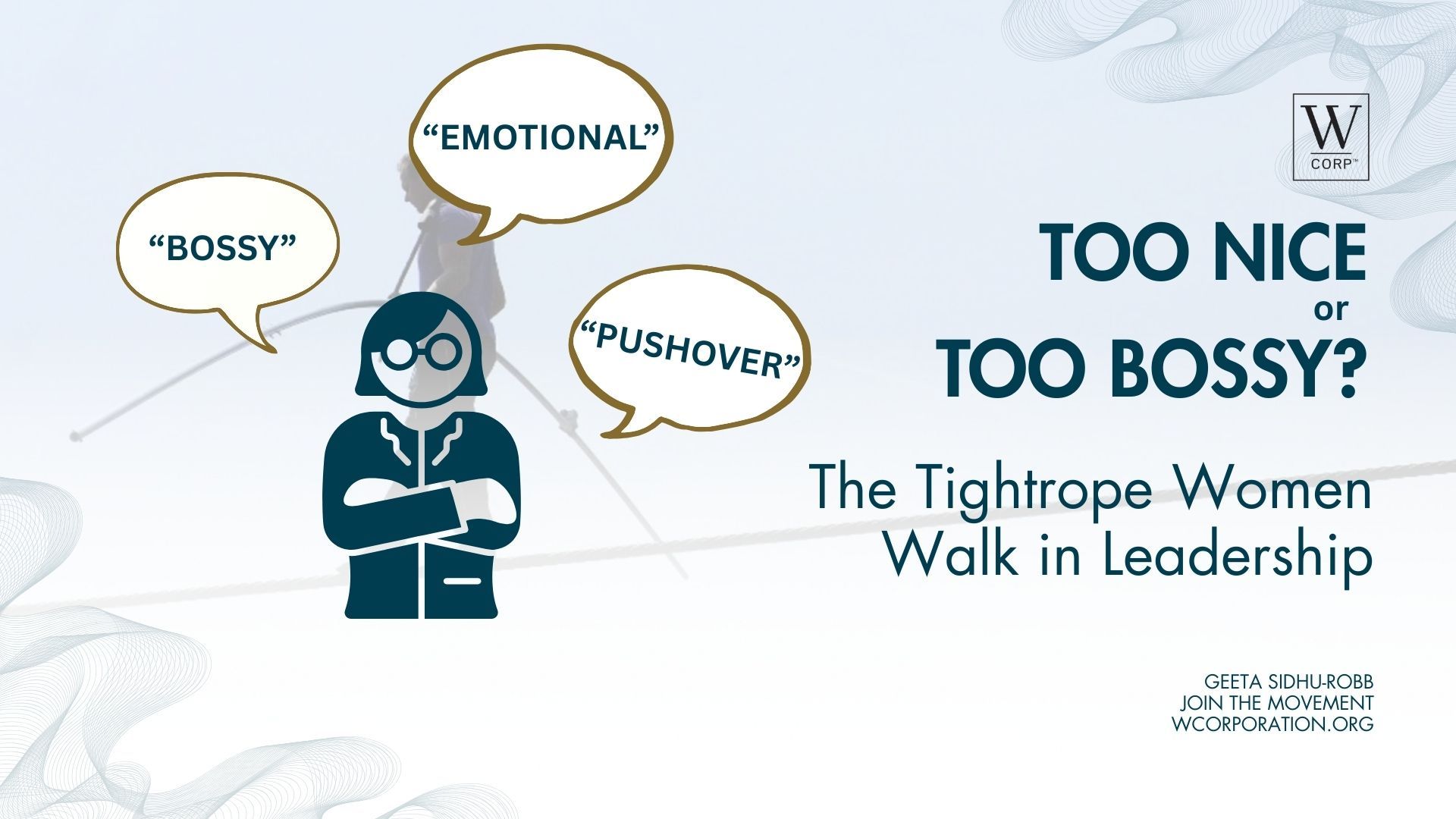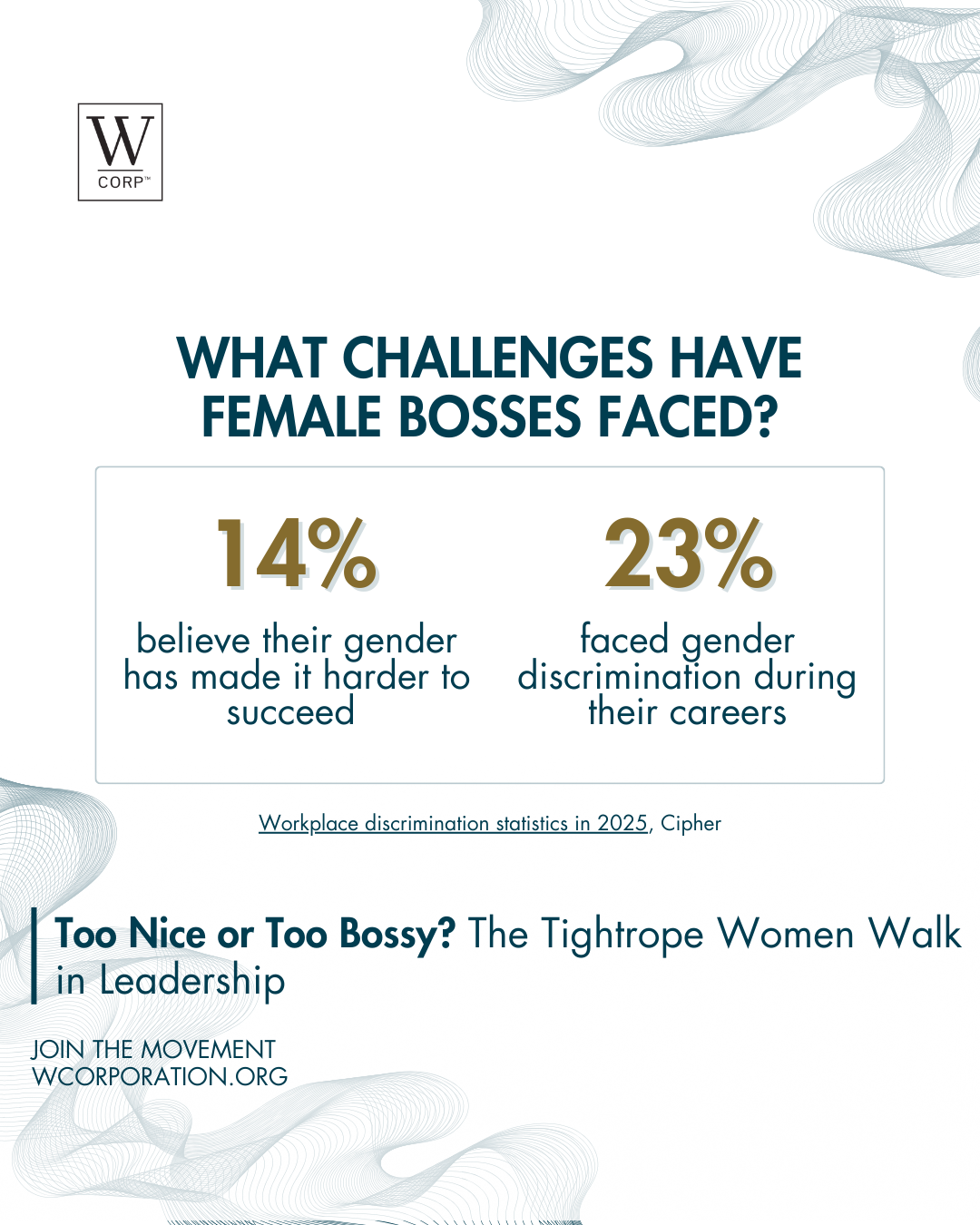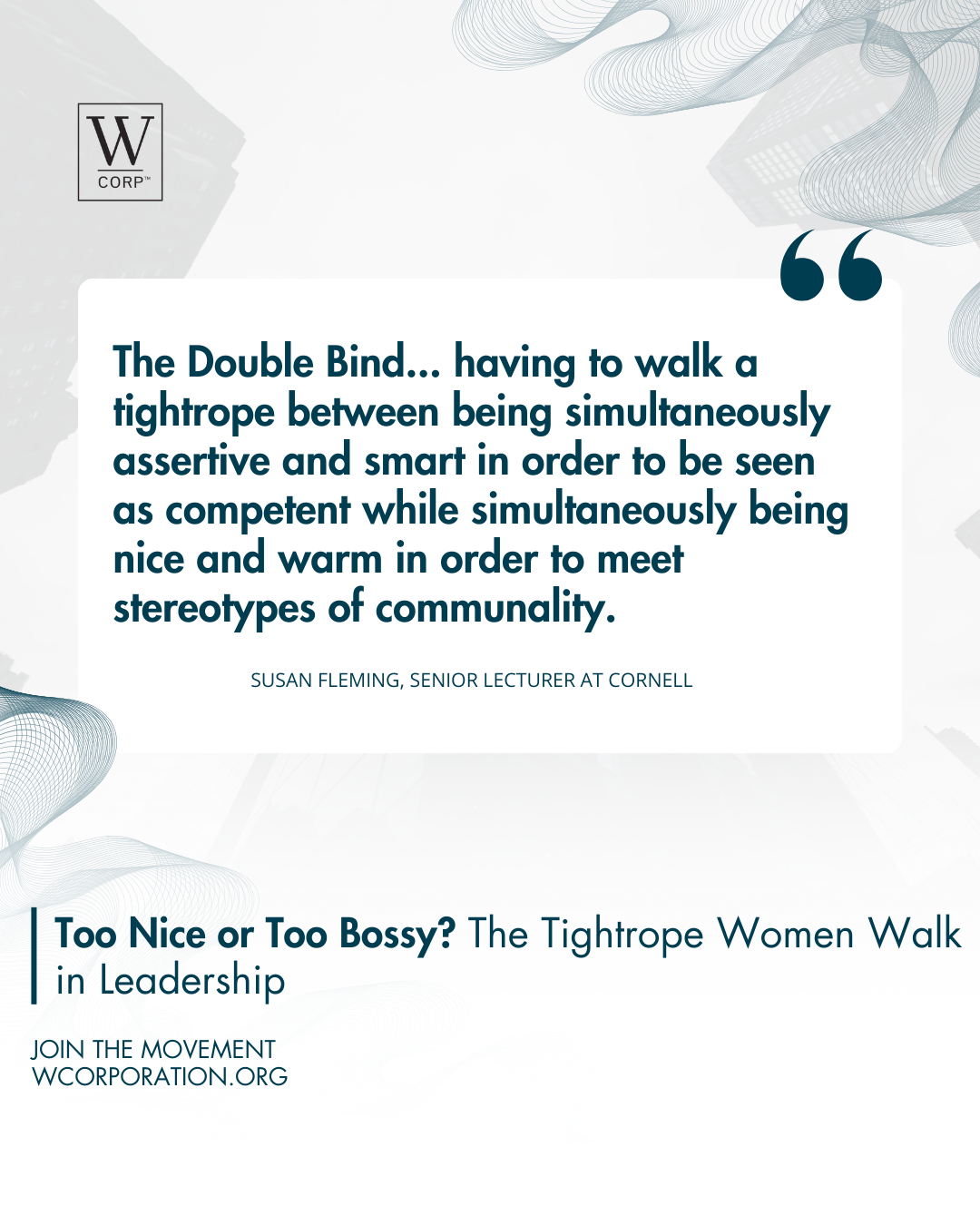Too Nice or Too Bossy? The Tightrope Women Walk in Leadership
May 16, 2025
In today’s workplace, women in leadership are often caught in a no-win situation. If they’re assertive, they’re labelled “bossy” or “cold.” If they lead with empathy, they’re dismissed as “too nice” or “too soft.” These contradictory expectations are more than frustrating - they reflect deep-rooted social norms that continue to shape how female leaders are perceived, judged, and treated.
The Double Bind of Female Leadership
While ambition, confidence, and decisiveness are praised in male leaders, those very same traits are frequently criticised when exhibited by women. An interview of Susan Fleming, a senior lecturer at Cornell, by eCornell highlights the reality: when women display assertiveness or strategic thinking, they are more likely to be described as “abrasive,” “difficult,” or “intimidating,” whereas men showing the same behaviours are labelled “strong” or “decisive.”
This phenomenon, often referred to as the double bind, puts women in an impossible position. To be seen as effective leaders, they must adopt traditionally “masculine” traits - but doing so often leads to social and professional penalties. On the other hand, exhibiting warmth and cooperation earns likability points, but may undermine perceptions of competence.
"The Double Bind, which is having to walk a tightrope between being simultaneously assertive and smart in order to be seen as competent while simultaneously being nice and warm in order to meet stereotypes of communality." - Susan Fleming, senior lecturer at Cornell
Persistent Stereotypes and the Likability Trap
According to a 2015 survey by The Independent, female managers are significantly more likely than male colleagues to be described in terms such as “bitchy,” “emotional,” or “bossy.” These labels are rarely applied to male leaders, even when they exhibit similar behaviours.
This discrepancy not only affects how women are perceived, it can have lasting impacts on their career progression. Performance reviews, hiring decisions, and promotion opportunities are often shaped by biased language that emphasises personality over outcomes. As a result, many women are forced to spend energy managing how they’re perceived instead of focusing solely on their work.
When “Bad Boss” Means “Too Female”
This perception gap extends beyond evaluations - it also shows up in how people talk about leadership experiences. In a workplace culture analysis by Forbes, women were disproportionately described as “bad bosses,” not due to poor results, but because of how their behaviour was interpreted. Assertiveness, when seen in men, was a virtue. In women, it was too often seen as a flaw.
According to Cipher’s Workplace discrimination statistics in 2025 , 14% female managers reported feeling that their gender has made it harder for them to succeed at work, and 23% of women have faced gender discrimination in their careers. The cumulative effect of these narratives is damaging. Women are implicitly told that to lead effectively, they must sacrifice authenticity - constantly adjusting their tone, language, and behaviour to strike a balance between strength and warmth. It’s a delicate balancing act that few men are ever expected to perform.

Rethinking Leadership Norms
To break free from this double bind, we must redefine what effective leadership looks like, and ensure that it’s inclusive of diverse leadership styles. Here’s how organisations can start:
- Audit feedback processes: Evaluate whether reviews for women focus more on personality than performance and adjust accordingly.
- Train managers in feedback literacy and gender-inclusive leadership evaluation.
- Normalise authentic leadership by celebrating different leadership styles—not just the dominant, often male-coded ones.
- Challenge gendered language wherever it appears, from job descriptions to performance reviews.
Creating workplaces where women can lead without having to choose between likability and leadership is not just fair, it’s also smart. Companies that champion inclusive leadership practices are more likely to retain top talent, foster innovation, and outperform their peers.
It’s time to stop asking women to walk a tightrope and instead start building a leadership culture where they can thrive with both competence and authenticity.
WCorp's Commitment to Progress
At WCorp, we're committed to accelerating this progress in 2025. Our goals include:
- Fully launching our AI-powered gender equity solution, ROI Genie, to help businesses implement and measure the impact of gender equality initiatives.
- Expanding our global network of WCorp Ambassadors to spread our message and support businesses worldwide.
- Certifying even more incredible companies across the globe, recognising their commitment to creating supportive workplaces for women.
By working together, we can transform workplaces, drive innovation, and unlock the $12 trillion economic opportunity that gender equality represents.
Share this post with your colleagues and team to inspire and educate about the remarkable journey of women in business. And join us in shaping a future where every woman can thrive in business.






